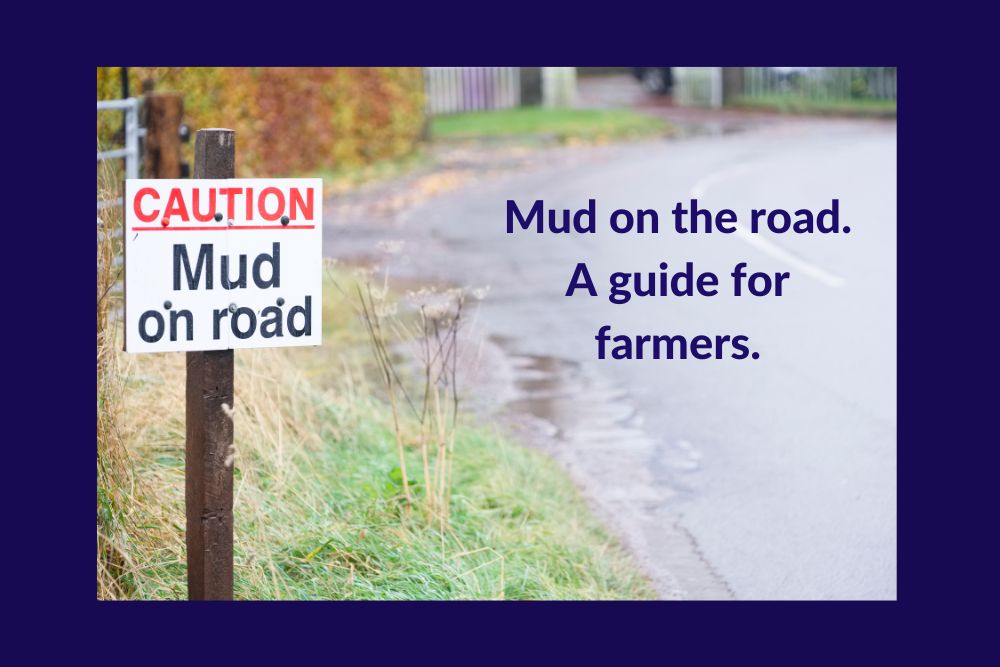It’s that time of year again. It’s wet. Turn off the main drag and you may spot the dreaded handwritten sign “Mud on Road”. Your lovely clean car is quickly covered in the finest of by-product that only farms can supply.
The NFU released a briefing note for farmers on the liabilities of mud on roads some time ago (the latter part of 2012). The information contained therein it remains good to this day.
Farmers are legally obliged to clear up after themselves and potentially liable for a range of offences. The powers available to the Police and Highways Departments primarily fall under the Highways Act 1980.
Various sections of the Act make it an offence to deposit mud on the highway that would “interrupt” other users. The Highways Authority has the power to clean the road and recover its cost from the party responsible.
Contravention can lead to a fine of up to £1,000 in a Magistrates Court. If mud on the road leads to a personal injury, damage to property or any loss and inconvenience, then the person responsible may be liable for damages. A conviction through the Magistrates Court of a criminal offence may be relied upon in any claim for damages.
So, what can you do? Be prepared to hire equipment in advance to clean up, keep to your own farm roads and minor roads wherever possible; keep to low speeds, especially when travelling a short distance, to help where possible to retain mud on your vehicle and record your decisions in writing, for example whether you deployed signs and/or cleaned the road.
You must do everything possible to prevent mud being deposited on the road. This includes cleaning mud from vehicles as far as practicable before they are taken on the road. If there is a danger of mud being accidently deposited on the road use “Slippery Road” or “Mud on Road” to alert other road users. Check with the local Highways Authority their requirements for warning signs etc.
Where a contractor is used, ensure that prior agreement is reached on who is responsible for signage and cleaning, etc. and ensure that adequate liability insurance is in place. Given the increasing use of contractors for heavy work reaching agreement as to liability and recording it in writing is important. The default position is that the landowner/user would be liable.
The reality is that it is not easy for anyone. At a practical level, farmers should, check their insurance, record decisions in writing and do all you can. Car drivers, be sensible, drive with caution when you see relevant signage and of course….buy a good sponge!
Follow this link to find out more about our support for farmers facing liability claims and other types of dispute, including those relating to partnerships, shareholders, land ownership, land use and contractual arrangements.



